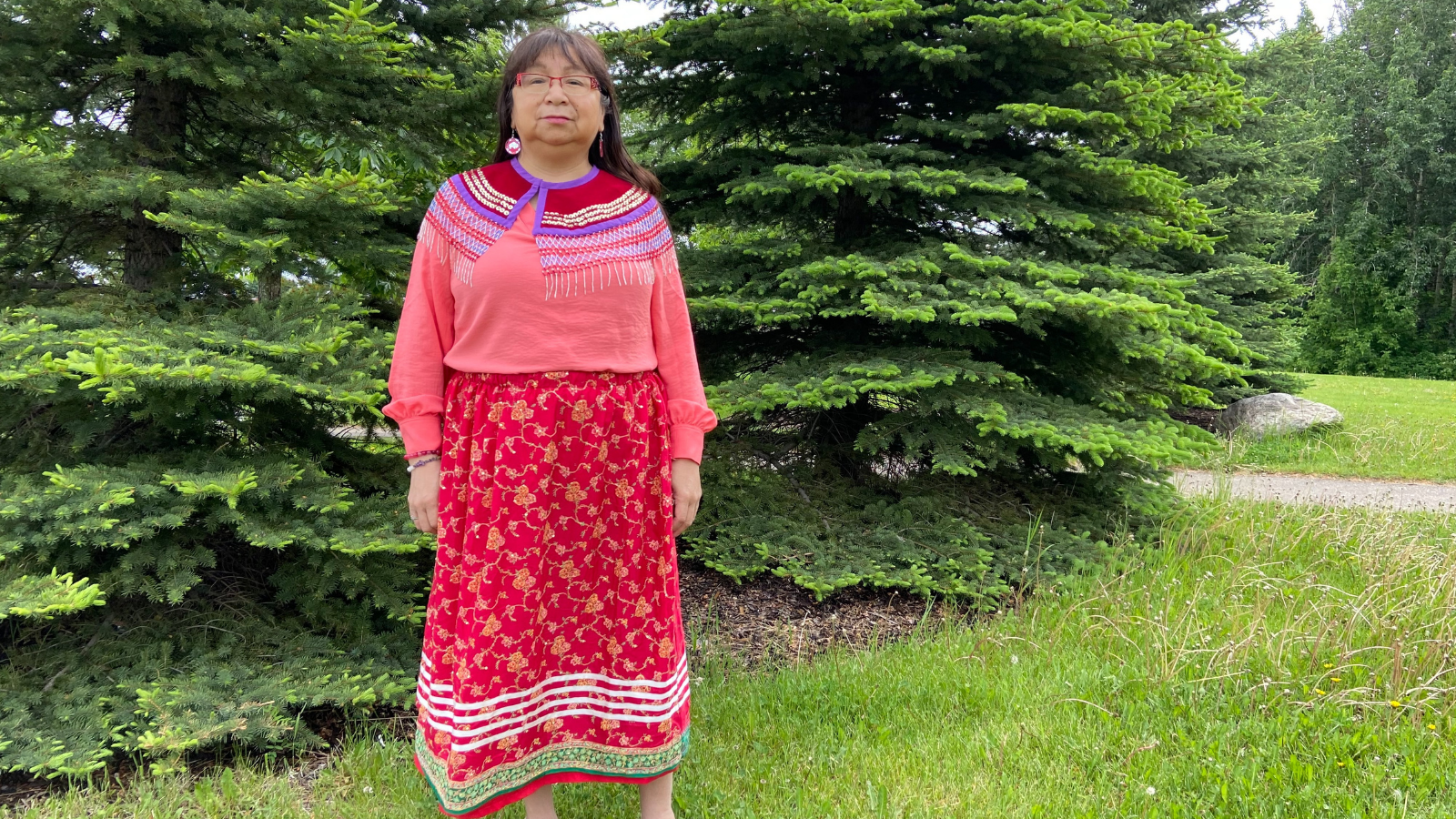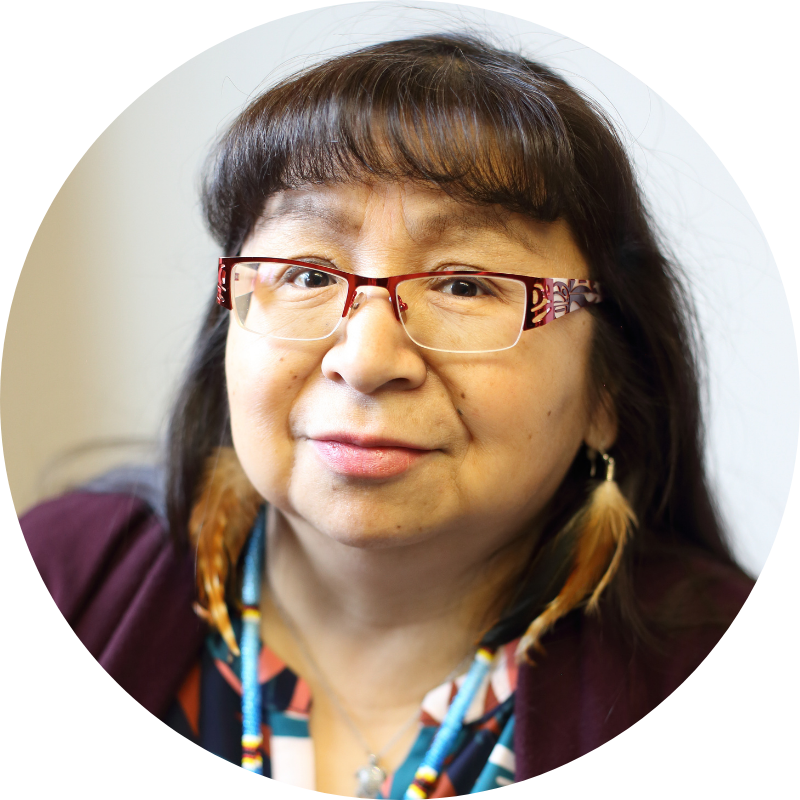Have you met Dorothy, Cree language instructor in the Faculty of Native Studies? Spend a few minutes getting to know her a little better.
What is your first U of A memory?
My first U of A memory is working alongside my late long-time friend, Donna Paskemin, and nikâwîpan (my late mother), Florida Thunder. Their kind-heartedness, patience and inspiration in working with nehiyawewin (Cree) will always remain in my heart. It has opened many doors for me and kiwâhkômâkaninawak (all our relations) to believe in themselves and work together in a healthy manner. I hear my mother’s words: “âhkameyimo nitânis kâya pôme” (“Keep it up my girl, don’t give up!”) mistahi ninanâskomon (many thanks) for all their inspiration that helped me persevere!
What’s something your coworkers don’t know about you?
My coworkers don’t know that I write poetry in my free time.

What’s your favourite distraction?
My favourite distraction is reading nehiyawewin and listening to nehiyaw (Cree) or historical documentaries about nehiyawewin. Many of the cultural arts that we do are also some of my many favourite distractions.
If you were enrolling in one course, program or degree right now, what would it be?
I would work towards completing a degree all in nehiyawewin, sharing nehiyawewin ekwa nehiyaw isihtwâwina (sharing our Cree ways) with others that wish to learn or become more knowledgeable about it.
You can invite anyone — alive or dead, real or fictional — to dinner. Who would it be?
I would say my late nikâwîpan (mother), whom I miss dearly. She taught me so much and traveled with me to conferences and ceremonies. We laughed together, we cried together and shared numerous stories. Our travels were the best — our trip to New Zealand is one we loved dearly. Thanks to the Faculty of Native Studies for making it happen.
If you could see any live performance tomorrow, what would it be?
I would love to see a live performance by Canadian-American singer-songwriter Buffy Sainte-Marie.
What advice would you give your 18-year-old self?
The advice I would give myself is to nurture myself and embrace all that I have learned to the best of my ability. nâkateyimiso ekwa sâkihiso (to care and love myself) which is more meaningful and personal saying it in my nehiyaw language. A lot about nehiyaw pimâtisiwin (Cree life/ways) has been lost, but I continue to embrace what was passed on to me and with that I stand strong for what I believe in. I am very grateful and honored to hold onto our knowledge systems and will continue to live that way of life and share what I know with others.
What’s one thing you can’t live without?
My family and all my relations, they mean the world to me. nisâkihâwak (I love dearly) my children, my partner, my grandchildren, my family and friends and my strong connection to kikâwînaw askiy (Mother Earth) and what was given to us by the Creator.
What three words describe your U of A experience?
miyopimâtisiwin, ahkameyimowin, nâkateyimisowin (good life, perseverance, self care)
National Indigenous Peoples Day is coming up on June 21. How will you celebrate?
I will be celebrating National Indigenous Peoples Day this year with family in nehiyaw ceremony.
I enjoy working with others, so in the past I have shared nehiyaw teachings through cahkipewasinahikewin (Cree syllabics) and nehiyawin (Cree language). I, along with co-instructors and family members, have shared Cree ways on this day through our teachings. It is a tremendous honor and we are very grateful to be able to share it with those that wish to learn more.

 About Dorothy
About Dorothy